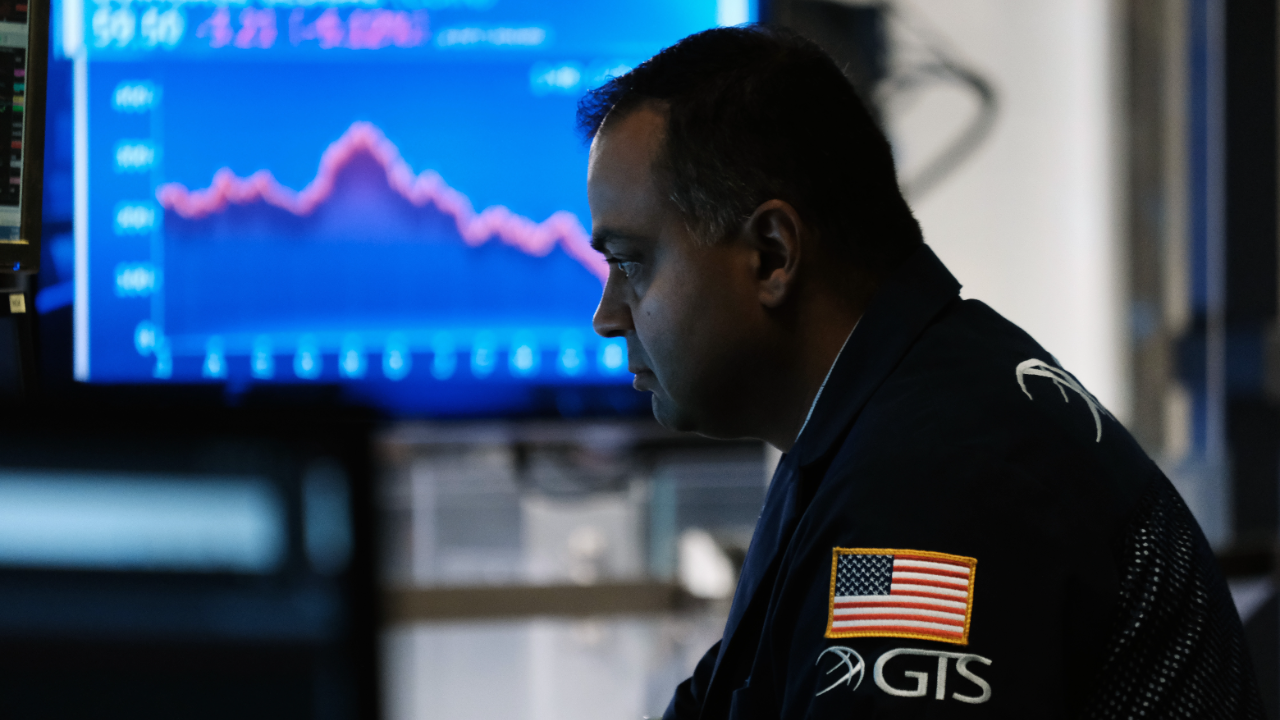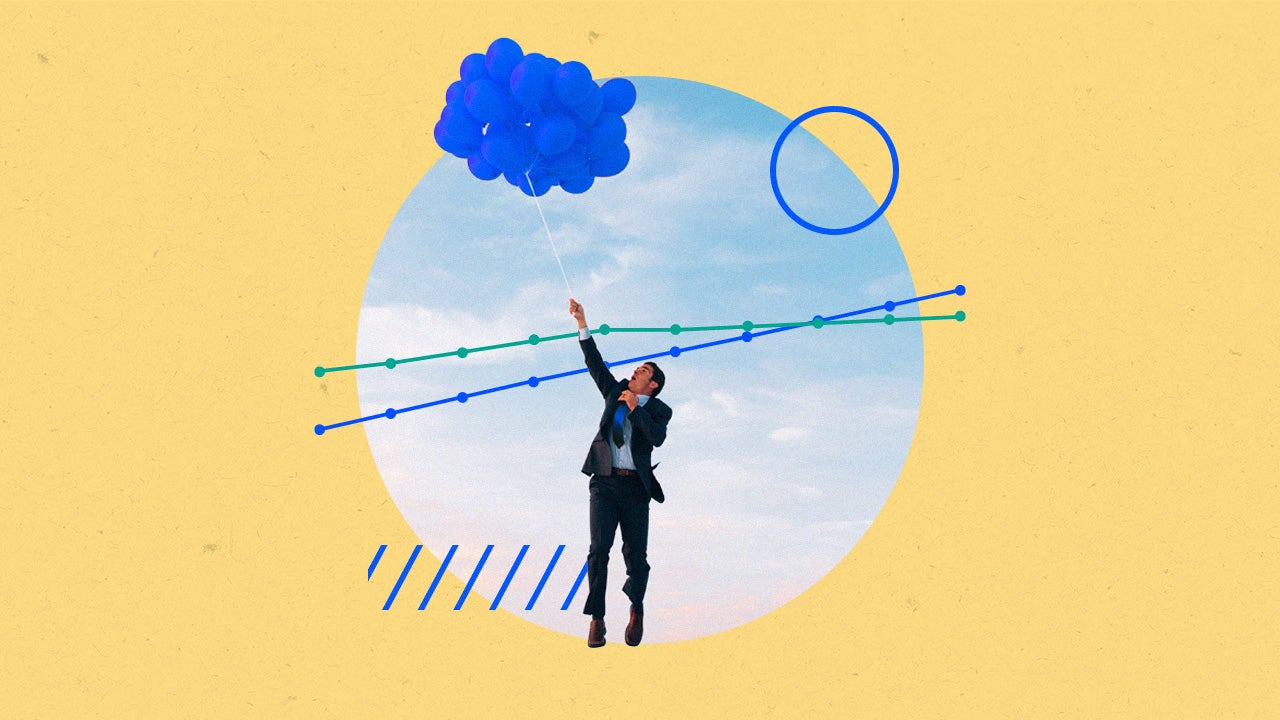Are we in a recession? It sure feels like it to many Americans

Some major vibe killers look like they could crash the U.S. economy’s party: High inflation, rising interest rates and fears of a recession — if one hasn’t already begun.
On paper, the music hasn’t stopped yet. Employers have quickly added jobs back to the U.S. economy, more than three times faster than the previous expansion’s pace. Joblessness has settled at a near half-century low, unemployment insurance claims are stable and businesses have had more than 11 million openings for five months.
Yet, Americans’ attitudes are clearly souring. Surveys show consumers have the lowest levels of confidence in the U.S. economy ever and business executives are the most downbeat since the onset of the coronavirus pandemic. Even major figures are starting to bring more attention to the problem — from entrepreneur Andrew Yang, rapper Cardi B and Tesla CEO Elon Musk.
The negativity is spreading to the stock market. The S&P 500 is down nearly 20 percent so far this year, with the key index joining the NASDAQ in a bear market on June 14.
If consumers aren’t feeling the pinch of higher interest rates from the Federal Reserve — which officially took its benchmark borrowing rate back to 2019 levels at its June meeting — they’re certainly feeling an impact from the highest inflation in four decades. Consumers almost unanimously (at 93 percent) said they had noticed inflation in a March Bankrate poll. Almost two-thirds said they had to cut back on spending because of it.
If the financial system were in a recession, experts say the labor market wouldn’t be as robust as it is today. They also say the stock market isn’t a solid recession indicator. Equities haven’t needed a recession to fall in double-digit amounts; they also haven’t required expansions to soar to record heights.
But recession or no recession, plenty of households are no doubt feeling like they’re living through one, which might matter most.
“Gas prices are going up, food prices are going up, real purchasing power is declining, and budgets are getting stretched,” says Ryan Sweet, senior director of economic research at Moody’s Analytics. “For a lot of households, it feels like a recession.”
Americans likely already feel like they’re living in a recession
A recession is declared by the National Bureau of Economic Research’s Business Cycle Dating Committee and occurs when economic activity contracts for longer than a few months. That downdraft is broad-based, influencing everything from employment and hiring to income growth, consumption and asset values.
“A recession tends to coincide with a rise in unemployment,” says Mark Hamrick, Bankrate senior economic analyst. “Joblessness, in turn, results in significant stress on households and their ability to pay for basic needs.”
Yet, high inflation can certainly feel like the same kind of pay cut when it squeezes households’ budgets. Inflation is costing the typical household an extra $460 a month, according to Sweet’s analysis of the consumer price index (CPI). Income growth also hasn’t kept pace with the current rapid increase in prices.
Making matters worse, price pressures are impacting items Americans would find hard to cut out of their budgets. Energy services are up about 16 percent from a year ago, and gasoline is up almost 50 percent over the past 12 months. Even groceries are 12 percent more expensive from a year ago, rising at an even faster pace than meals out at a restaurant.
Hiding from inflation is thus a tall task right now. Americans can skip a meal out — but they can’t skip a meal.
“Even if we’re not in a recession, it doesn’t mean that everything is peachy,” says Stephen Miran, co-founder of Amberwave Partners, who formerly helped implement the Paycheck Protection Program (PPP) at the Treasury Department. “Households are suffering under inflation that nobody has seen in half a century. Inflation can really undermine the economy.”
None of that bodes well for how consumers will feel when a downturn officially starts — an inevitable part of any economic cycle.
Continued growth in the U.S. economy depends on spending — the powerhouse of the economy. Consumers have an extra $2.1 trillion stashed away from the pandemic, a Morgan Stanley analysis from May found. That cushion could hopefully help buoy consumption as households take the inflation hit, but some pocketbooks are more well-positioned than others. The bottom 20 percent of earners, for example, have already depleted their funds, the investment bank also found.
That same group is more likely to be hurt from high inflation. Bankrate’s poll from March found that those who earned less than $30,000 were almost twice as likely (37 percent) than earners making above $100,000 a year (at 22 percent) to say their wallet was “very negatively” impacted by high inflation.
Even so, consumption in the first quarter of 2022 jumped 3.1 percent, the biggest increase since the economy was climbing out of pandemic-induced lockdowns in the second three months of 2021. Retail sales are also near a record high, according to the Census Bureau.
“That upper 40 percent is responsible for 60 percent of spending,” says Joe Brusuelas, chief economist at RSM, a consulting firm. “Those upper income households provide somewhat of a cushion that otherwise would not be there. They have the wherewithal to absorb price increases and move on. It doesn’t mean they’re happy; it just means they have the income to absorb the price increases.”
Here’s when the next recession could happen
Yet Brusuelas puts the risk of a recession over the next 12 months at 35 percent. Most of that is indirectly tied to high inflation — and what the Fed has to do because of it. The biggest risk, he says, is delayed impact from the Fed’s rate hikes.
Officials often say it takes months, if not a full year, for policy to fully travel through the economy. Considering that data is also released with a lag, it can be hard for officials to realize when they’ve done too much before it’s too late.
Higher inflation for longer brings about the risk that officials overdo their tightening cycle, taking too much oxygen out of the room. The Fed in June penciled in plans to hike borrowing costs to a target range of 3.25-3.5 percent by the end of 2022, the most tightening in a single year since the 1980s if it pans out. Investors, however, are bracing for the Fed to raise rates even further than that: to 3.5-3.75 percent by the end of this year, according to CME Group’s FedWatch.
“These policy tools don’t work overnight, and there’s almost no way to bring inflation down in a cost-free way,” Brusuelas says. “There are just trade offs.”
Right now, a next recession doesn’t look like it will be severe
Americans won’t know whether they’re living through a recession until the National Bureau of Economic Research’s Business Cycle Dating Committee says so. Most of the time, that’s after the fact, as officials require months of data after all of it’s been revised.
Even so, experts are hopeful a recession spurred by too much Fed tightening wouldn’t be as severe as the coronavirus pandemic or the Great Recession before it. That’s because those downturns were accompanied by a natural disaster and a financial crisis. The former brought the gears of the modern economy to a grinding halt; the latter required a years-long recovery to rid household and business balance sheets of bad debt.
“People shouldn’t be forming an archetype in their mind based on what happened after the Great Recession and thinking that’s sort of the baseline typical path for the economy whenever a recession hits,” says Preston Caldwell, head of U.S. economics at Morningstar. “My focus is not on the question of where a recession will occur but could a severe recession happen — and on the latter question, I’m quite confident that is very, very unlikely.”
Why we ask for feedback Your feedback helps us improve our content and services. It takes less than a minute to complete.
Your responses are anonymous and will only be used for improving our website.
You may also like

Are we in a recession or ‘vibecession’?





